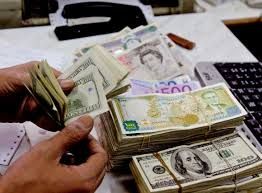According to a report, India's major political parties fund themselves with unaccounted money, their audited accounts revealing only a fraction of their actual expenditure.
 Contribution to political parties, especially during elections, and a lack of financial disclosure by elected representatives are among the major sources of black money, according to Association for Democratic Rights.
Contribution to political parties, especially during elections, and a lack of financial disclosure by elected representatives are among the major sources of black money, according to Association for Democratic Rights.
The Special Investigative Team handling black money ought to probe the opaque handling of funds by political parties, their dubious sources of income, and the influence of black money in elections, the democracy watchdog said in a report.
In its submission to the SIT, the ADR has come up with a staggering research on the lack of openness in election funding.
"Electoral compulsions for funds have become the foundation for the whole superstructure of corruption," the report notes.
According to the report, India's major political parties fund themselves with unaccounted money, their audited accounts revealing only a fraction of their actual expenditure.
It says that an analysis of Income Tax Returns of national political parties between FY05 and FY13 shows that the total income of the parties from unknown sources of income amounted to Rs 4,368.75 crore or Rs 43.68 billion (72.98 per cent of the total income of national parties).
The Bahujan Samaj Party has declared a total income of Rs 585.07 crore (Rs 5.85 billion) between FY05 and FY13, of which Rs 307.31 crore (Rs 3.07 billion) was from voluntary contributions.
However, the names and other particulars of these 'voluntary' contributors are not known, as the party has maintained that no donations above Rs 20,000 was received, thereby not declaring the names of even a single donor in eight years.
Only a few regional parties submit their ITRs and contribution reports to the respective authorities on a regular basis.
Political parties either do not file their 'election expenditure statements' or do not file them on time.
The Bharatiya Janata Party and a few regional parties have not yet submitted their expenditure statements for the Karnataka Assembly Elections held in 2013, when the deadline was July 22, 2013.
The report also notes the mushrooming of new parties -- of which only a few actually contest elections.
The report also says there has been an extraordinary growth in assets declared by the candidates (contesting elections) shown in their self-declared affidavits submitted during their nomination for the 2009 and 2014 Lok Sabha elections.
One hundred and sixty-five re-elected members of Parliament have shown a total increase in immovable assets of Rs 1,232.43 crore (Rs 12.32 billion) or a 137 per cent increase.
Three hundred and ninety-six re-contesting MPs (sitting MPs of the 15th Lok Sabha 2009-2014 who contested the 2014 elections) have shown a total increase in total assets worth Rs 3,366.58 crore (Rs 33.66 billion) or a 146 per cent increase.
The report says a close analysis of the liabilities declared by MPs elected in the 2014 Lok Sabha elections shows there are many MPs who have raised big-ticket unsecured loans from many big and small real estate companies.
It says two Rajya Sabha MPs were receiving salaries from a scam-ridden company running a ponzi scheme, but the MPs never declared them in their register of interest declarations to the Rajya Sabha.
There are also serious inconsistencies in election expenditure. Sixteen MPs have said the election expenditure incurred by them is more than their total assets declared during the elections.
An analysis of ITRs and contributions submitted by the national political parties -- Indian National Congress, BJP, BSP, Nationalist Congress Party, Communist Party of India and Communist Party of India (Marxist) -- to the Election Commission between FY05 and FY13 indicates the total income of these six parties between FY05 and FY13 was Rs 5,986.32 crore (Rs 59.86 billion).
Of this, the total income of political parties from unknown sources (income specified in the ITRs whose sources are unknown) was Rs 4,368.75 crore (Rs 43.68 billion), which is 72.98 per cent of the total income of the parties.
ADR has also found a mismatch in the funds allocated by parties to their MPs, as declared by them in their election expense submission, and funds received by the MPs from their parties, as declared by them in their expense submissions.
For example, in the 2009 Lok Sabha Elections, out of 277 MPs from national parties, a total of Rs 7.46 crore (Rs 74.6 million) was declared by 75 MPs as received from their parties but the national parties have declared that Rs 14.19 crore (Rs 141.9 million) was given to 138 MPs.
The report says at least three parties have been found to be involved in money laundering activities and were issued notices by the tax authorities.
Representative image. Photograph: Reuters












 © 2025
© 2025